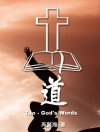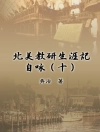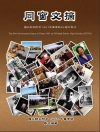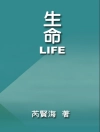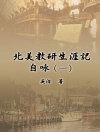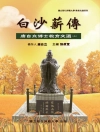In the mid-1950s, Lucille Ball rose to the top of the Gallup Poll as the most famous woman on Earth. Today, she’s one of the best examples of a celebrity who succeeded at crafting an influential ‘Second Act’ after I Love Lucy and her devastating divorce from her show-biz partner, Desi Arnaz.
The is the second volume of a two-part biography crafted by two of the most prolific show-biz biographers in America. Fans and readers have good reasons to anticipate it with gusto: The limited number of previous Lucille Ball biographies have each virtually ignored the last thirty years of her life, implying that her life ended in 1960 after her divorce from Desi Arnaz. One noted biographer summed up her three (emotional and fraught) final decades in five abbreviated pages. In vivid contrast, we maintain that Lucille, an artist and renowned businesswoman, deserves more. She gets it in the 500+ pages (with photos) of this book, the most in-depth portrait of this great American star ever published.
It examines her second husband, Gary Morton, a ‘Borscht-Belt’ stand-up comedian with a gift for diplomacy and the tactful handling of divas. It describes how she reinforced her status as a reliable television ‘staple’ with at least two ongoing (albeit derivative) series, The Lucy Show, Here’s Lucy, and as a last hurrah, the ill-fated Life With Lucy. It examines the final years of a fast-collapsing Desi Arnaz, who, ‘post-Lucy, ‘ gambled away his millions and destroyed his health with late nights, liquor, and endless Havana cigars. It explores the drug addiction (and recuperation) of Lucille’s son, Desi Jr., and the show-biz struggles (and occasional resentments) of both of her children, including Lucie Arnaz. It also contrasts Lucille’s ‘vintage mystique’ with the ‘Generation Gap’ and the emerging careers of younger stars (Carol Burnett, Mary Tyler Moore, Tom Selleck, Arnold Schwarzenegger, Cher, and about forty others) who admired and perhaps resented her, too.
It’s also filled with details about Lucille’s behind-the scenes banter with MGM’s, Warner Brothers’, and Fox’s ‘dragons of yesteryear, ‘ once-celebrated stars dragged, by Lucille, back into the limelight through a formulaic roster of ‘TV Specials’ that celebrated a fast-dying way of American life.
Extra-marital, post-Desi indiscretions? Let’s just say that our favorite redhead liked her men big and strong-‘No pretty boys for me.’
Her most frequent co-star in the final decade of her life was the nostalgic ‘for the way things used to be in Hollywood, ‘ Bob Hope.
In one format or another, the very durable Lucille Ball appeared on television every year of the last thirty years of her life, making her last appearance (alongside an even more durable show-biz warhorse, Bob Hope) at the Academy Awards in March 1989. She died about a month later of heart failure. Tributes poured in from around the world. Her legend, obviously, continues to thrive, stronger, perhaps, than ever. From the grave, Lucille might refer to the media brouhahas surrounding her demise as ‘My Comeback.’
Actually, she has never gone away. Her telecasts have been broadcast somewhere, in some country, every day since the 1950s. Her reign continues decades after her heyday. Everybody Loves Lucy. This book goes a long way in explaining why.
Зміст
Chapter One
Lucille Launches Act Two of a Turbulent Life page 1
Chapter Two
Lucille’s Back-As a Solo page 25
Chapter Three
As Co-Owner of Desilu, Lucille Emerges as
the Most Powerful Woman in Hollywood page 55
Chapter Four
The Lucy Show page 87
Chapter Five
Lucille Sells Desilu to Gulf + Western page 121
Chapter Six
Television & The March of Time page 143
Chapter Seven
Here’s Lucy page 175
Chapter Eight
Celebrity Feuds page 205
Chapter Nine
Lucille Confronts the Generation Gap: Sex, Drugs,
Rock & Roll, and Her ‘Babe Magnet’ Son page 231
Chapter Ten
As Hollywood’s Aging Stars Fade & Begin to Die,
Like Troupers, the Few Who Remain Attempt to
Boost Ratings for Here’s Lucy. page 269
Chapter Eleven
Defying the Odds, Lucille Emerges as the
Last Survivor of Vintage, Golden-Age Television
Lucy Plays Mame as a Flaming Drag Queen page 303
Chapter Twelve
After the Lingering, Long-Awaited Death of
Here’s Lucy, Lucille Forges Ahead with a Frenzied
Campaign to Re-Invent Herself page 327
Chapter Thirteen
Lucille’s Career Declines. As It Falters, Her
Children Struggle for Industry Recognition page 357
Chapter Fourteen
Aging Gracefully? Lucille Becomes a Key Figure
In Televised Odes to Vintage Hollywood. page 393
Chapter Fifteen
Like Many Mothers of the 1970s and Early ’80s,
Lucille Struggles with Her Son’s Drug Addiction .page 433
Chapter Sixteen
Lucille Gets Nostalgic and Patriotic (Again & Again
& Again) with Bob Hope. Bravely, They Morph into
Predictable, ‘Past Their Expiration Date’ Television
Fixtures & Icons of ‘The American Century’ page 475
Chapter Seventeen
Lucille’s Last Hurrah page 507
Epilogue page 542
Authors’ Bios page 547
Про автора
Fascinated as he is by the American conception of fame and its implications, Darwin Porter is the award-winning author or co-author of at least 50 celebrity biographies of prominent entertainers, politicians, and trend-setters from the peak years of ‘the American Century.’ He was assisted in the production of this book by Danforth Prince, a former employee of the Paris bureau of The New York Times and an long-time researcher and writer for the FROMMER Travel Guides.



